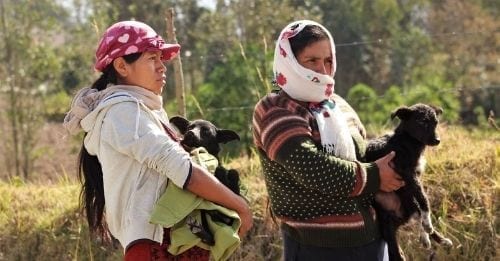
If you have been following the Amber Abroad Series, you may remember me for my time spent in Cambodia. I documented my 6 months spent working with an incredible animal clinic named PPAWS, and shared their work to improve the lives of the animals in their country.
My adventures in Southeast Asia were cut short due to the sudden pandemic, forcing me to reevaluate my plans for 2020. Just when I thought my work was put on hold, I was introduced to the Amici Cannis Animal Hospital in Cotacachi, Ecuador.
From the moment I researched the work of this impressive clinic, I knew I had to get down there and see it myself. A short plane ride and a few taxis later, I arrived in the beautiful city of Cotacachi!
Who Is Amici Cannis?
If you walk the streets of Cotacachi, you will see a lovable street dog on every corner. While the thought of a street pup may seem sad at first glance, you will be happy to hear that each pup has the undying support of the Amici Cannis family. The Amici Cannis Animal Hospital is a full-service animal clinic that is fighting tirelessly to improve the lives of the animals of their community. Not only do they care for the pets of Cotacachi, but every animal that roams their streets. By operating their full-time clinic, they are able to care for the many street dogs and give back to their surrounding communities.
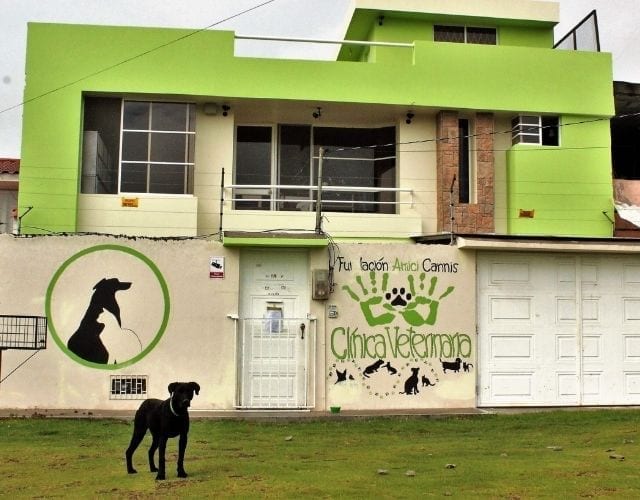
Helping Animals In Indigenous Communities
The Amici Cannis Animal Hospital not only cares for the dogs of their city, but for the animals in surrounding indigenous communities as well. Ecuadorian Quecha communities are spread throughout the country of Ecuador, many of which are situated in the hills surrounding Cotacachi. The people of these indigenous communities live a simple life, often making just enough money to feed their families. Because of this, veterinary medicine is not a common practice in these areas.
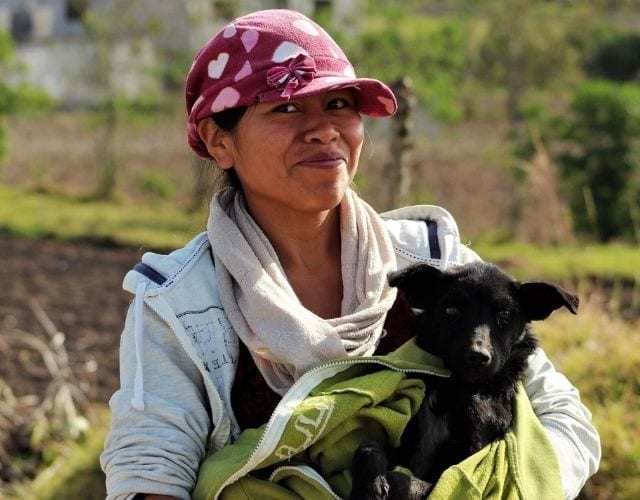
Since veterinary care is not well known in the small villages, these communities feel the impact of canine overpopulation and infectious disease. The families love the animals in their life, but these factors are simply out of their control. It’s not a lack of caring on their part, but rather a solution they never had access to. Thankfully for the animals of the indigenous communities, Amici Cannis is there to help.
Sterilization Campaign Day
The Amici Cannis Animal Hospital teamed up with city officials to organize sterilization campaigns in the surrounding communities of Cotacachi. With the overpopulation of street dogs and infectious diseases skyrocketing each year, they knew they had to come up with an effective solution. In organizing weekly veterinary campaigns in communities that are struggling, they have been able to improve the lives of so many furry friends. Each week the team at Amici Cannis heads out to a new community, ready to offer their skilled expertise!
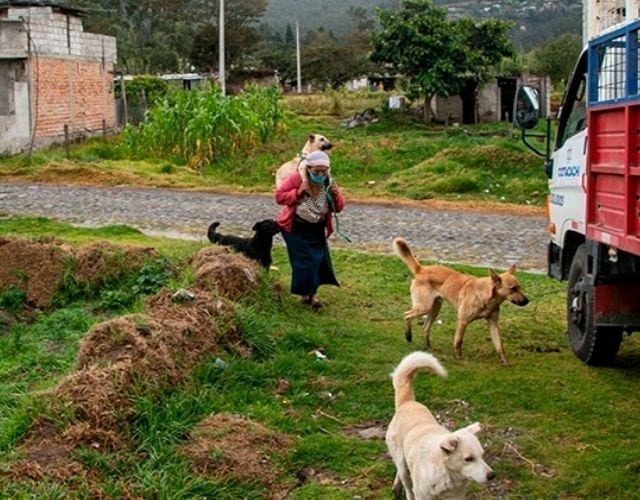
Lined Up & Waiting With Their Pups
Each Thursday the team at Amici Cannis sets out to a different indigenous community to collect 15 canine friends. The leader of each community selects a group of eligible pups, and asks each pet parent to line up at a set location at 7:30am. The team at Amici Cannis arrives at the set location with a large truck, stacked with cages for each furry friend.
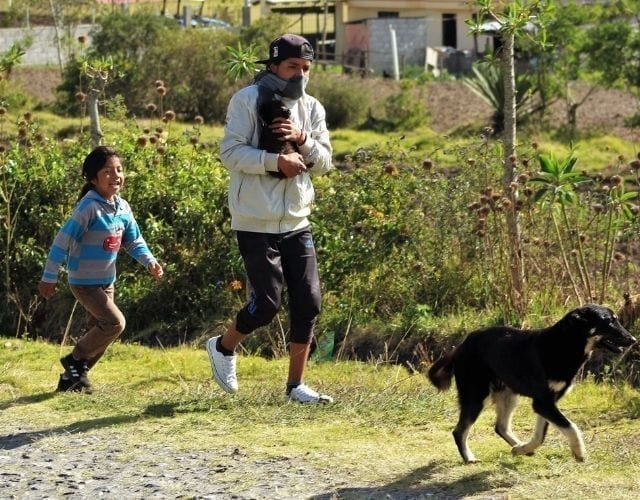
The doctors and technicians get to work on checking in each furry friend and gives them a collar that states their set number. This will be their identifier throughout the entire vetting process and ensure that each dog gets the treatment they need. Once each pup is checked in and loaded up on the truck, it’s time to head back to the animal clinic for their surgery!
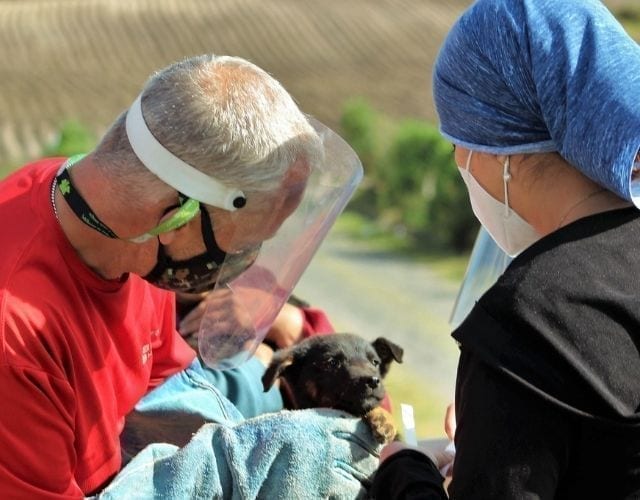
Surgery Time
Once everyone makes it back to the clinic, it’s time to get to work! The team likes to have all the dogs returned to their families by 5 PM, so they generally have about 7 hours to perform multiple surgeries and vaccinations. While this may sound like a challenging task for many, this team has an impressive system in place.
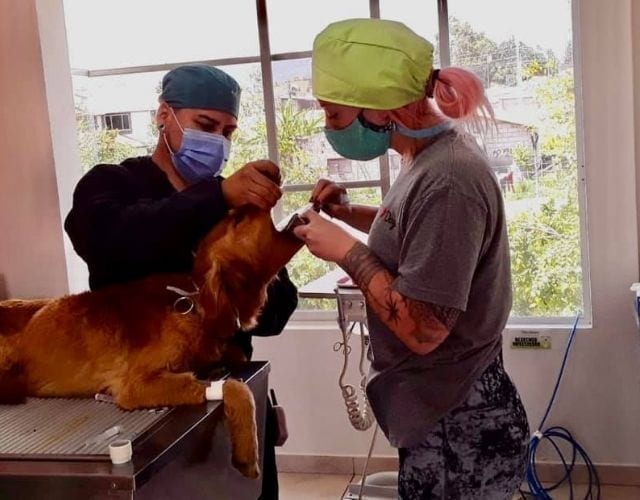
One by one, the dogs are checked in for surgery and prepped. Each dog receives an initial injection of medication to help calm them down, along with a second medication that will put them under for their surgery. Once they are fully anesthetized, they receive the Amici Cannis special. Each furry friend will be sterilized, vaccinated against infectious disease, dewormed, and tattooed. When each pup is awake and on their feet, it’s time to head home to their family!
Time To Go Home
The pet parents line up at the original drop off spot, eagerly awaiting the arrival of their beloved companions. One by one the pups are reunited with their loved ones, often greeted with an eager tail wag and kiss. The joyous reunion is made even sweeter with the understanding that each pup has a chance at a healthier future. Without the threat of unwanted pregnancies and deadly disease, these furry friends can live a life of happiness alongside the ones that love them dearly.
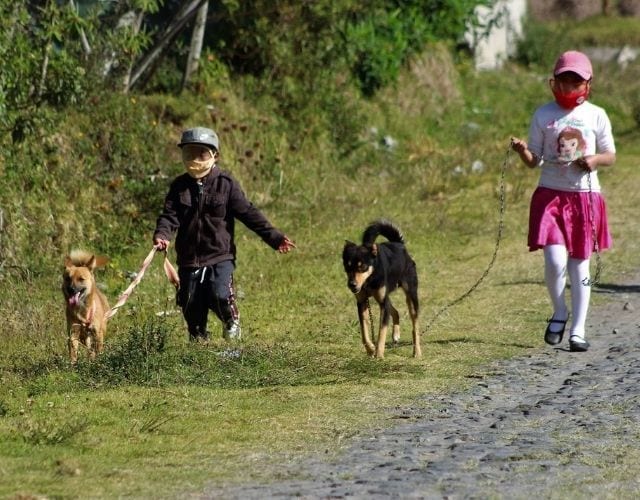
The Lesson
As animal lovers, we want the very best for every canine companion out there. The thought of animals lacking veterinary care in unknown parts of the world is heartbreaking and can cause us to put a mental wall up to these communities. However, my travels have taught me that a lack of animal care is rarely an act of cruelty.
A different level of animal care is often due to a lack of resources, and veterinary care is far out of reach. These indigenous communities love their animals with everything they have and are so grateful for the chance at keeping their dogs healthy. Though their lives make caring for an animal a bit more challenging, they still do so with an open heart.
If you would like to donate to the continued efforts of the Amici Cannis Animal Hospital, you can donate here.
Check out Part 5 in my series: Children Are The Key To A Better Future For Animals
Image Source: Vettechandtravel/Insta
The post Amber Abroad Part 6: Ecuadorian Animal Clinic Helps Dogs In Their Indigenous Communities appeared first on iHeartDogs.com.
from iHeartDogs.com https://ift.tt/3obGSyw https://ift.tt/3mAq9oo
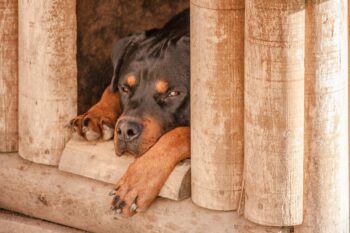
No comments:
Post a Comment